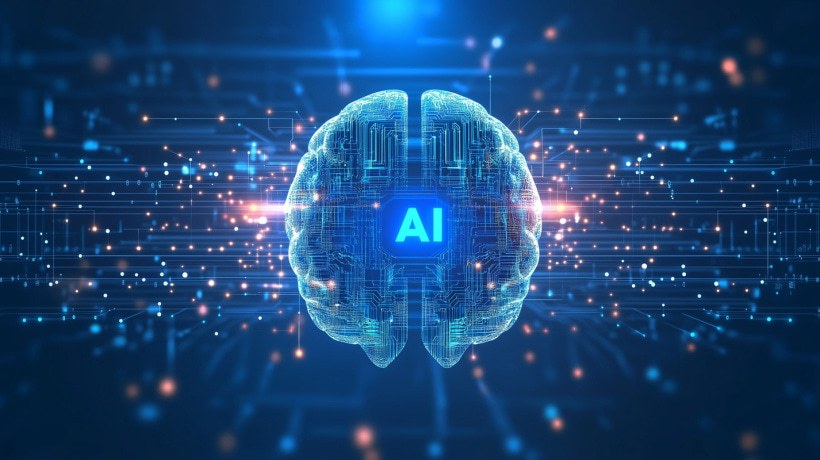AI Is Transforming Learning For Associations
Associations—professional bodies, trade groups, nonprofits, certification consortia—are increasingly turning to Artificial Intelligence (AI)‑powered LMS platforms to transform how they educate, engage, and retain their members. Far beyond simple course hosting, these intelligent platforms are reshaping learning experiences through personalization, automation, data‑driven insights, and accessibility. In this article, we explore how AI-powered LMS platforms are revolutionizing learning for associations, supported by the latest data, case examples, and ethical considerations.
How AI Personalizes The Member Learning Experience
1. Hyper‑Personalization at Scale
- Personalized learning paths
Artificial Intelligence analyzes each learner's performance, activity, and preferences to craft personalized learning paths—delivering content, challenges, and pacing tailored to their needs. This highly adaptive experience keeps learners motivated and improves retention. - Predictive nudges and drop‑out prevention
Leveraging predictive analytics, Artificial Intelligence can identify at‑risk learners early—those showing signs of disengagement—and trigger timely nudges or interventions. This proactive approach helps associations reduce drop‑outs and foster completion.
2. Smart Content Creation And Curation
- Automated content generation
AI tools can auto-generate quizzes, practice exams, and course modules from raw material—webinar transcripts, documents, or webinar recordings. This slashes content development times dramatically. - Dynamic curation and translation
Natural Language Processing (NLP) enables Artificial Intelligence to scan vast content repositories to recommend highly relevant resources, break content into digestible modules, and even localize content through translation and transcription.
3. AI‑Driven Member Engagement And Support
- Virtual learning assistants and chatbots
AI‑powered chatbots and virtual assistants provide 24/7 support, answering FAQs, guiding navigation, suggesting learning paths, and managing routine tasks—freeing staff time and enhancing learner experience. - Social learning and networking
AI can facilitate peer matching, group formation, discussion prompts, or networking suggestions based on interests and learning patterns—fostering richer, socially connected learning environments.
4. Rich Analytics To Guide Strategic Decisions
- Real‑time dashboards and insights
AI equips associations with dashboards that track engagement, progress, and participation in real time, enabling administrators to monitor performance, spot trends, and make data‑driven adjustments. - Predictive business intelligence
AI can forecast future trends—course demand, pricing sensitivity, revenue potential, and member lifetime value—allowing associations to optimize their offerings strategically. For readers exploring practical frameworks, this insight connects closely with a detailed AI LMS guide. For example, one organization leveraging this approach saw a 34% boost in certification revenue.
5. Accessibility, Scalability, And Immersive Learning
- Inclusive and multilingual access
With AI‑powered translation, text‑to‑speech, speech‑to‑text, and captioning, LMS platforms become accessible to diverse learners—those with disabilities, non‑native language speakers, or global audiences. - Scalability without compromising quality
AI allows associations to scale learning programs swiftly—onboard growing cohorts, deliver personalized experiences to many users, and maintain quality—all with minimal extra cost - Immersive and mobile‑first experiences
Emerging trends include AI‑enabled Augmented Reality/Virtual Reality learning environments—simulated labs, dynamic visual overlays—and mobile‑first design with push‑notifications and offline access for on‑the‑go learners.
6. Automated Compliance, Credentialing, And Workflow Integration
- Proctoring and certification management
AI can monitor exam integrity through behavior analysis, automatically issue digital badges/certificates upon course completion, and notify members when renewals or CEUs are due. - Integration with CRM, HR, and internal systems
Seamless integration with existing association systems—member databases, CRMs, HR tools—ensures synchronized data, efficient credential tracking, and streamlined User Experiences.
7. Automation Enhances Staff Productivity
- Time‑saving automation
AI handles repetitive tasks—grading, reporting, scheduling, and reminders—so association staff can reallocate their time to strategic functions like course development and member engagement. - Content upkeep and continuous improvement
AI keeps content fresh—automatically updating modules based on new standards or documents, improving courses iteratively based on learner feedback and evolving needs.
8. Emerging Innovations And Research Insights
- Adaptive LMS with LLMs
Recent academic research explores leveraging Large Language Models (LLMs) to build highly adaptive learning systems—tailoring content, minimizing factual inaccuracies, and addressing privacy concerns. - Intelligent teaching assistants and pedagogical analytics
AI tools are being developed that go beyond tutoring: they track learners' emotional states, cognitive development (via Bloom's taxonomy), stress or curiosity levels—and advise educators in real time for more effective intervention. - Intelligent Tutoring Systems (ITS)
These systems emulate one‑on‑one tutoring through dynamic, personalized instruction—offering feedback and guidance comparable to what a human tutor might provide.
9. Ethical And Implementation Considerations
- Data privacy and security
AI systems need vast amounts of member data to function. Ensuring compliance with privacy regulations (e.g., GDPR, HIPAA), secure data handling, and transparent policies is essential. - Bias and algorithm auditing
Without careful design, AI may perpetuate biases or unfair treatment of certain groups. Ongoing fairness audits and transparent models help maintain equity. - Human oversight and balanced automation
AI should augment—not replace—human roles. Mentorship, association-specific knowledge, and pedagogical expertise are still extremely valuable. A balanced approach preserves integrity and trust. - Implementation strategy
Association leaders must audit existing technologies and ensure readiness before adopting AI. Without careful preparation, they run the risk of investment waste, platform weariness, and fragmentation.
Conclusion
AI-powered LMS platforms are not just another tech upgrade—they are game‑changers for associations. By elevating personalization, automating overhead, offering deep learning insights, and enabling inclusive and scalable delivery, they help associations deliver more valuable, relevant, and effective learning experiences.
However, realizing this potential depends on ethical use, strategic readiness, and human‑centered implementation. For associations committed to advancing their members' professional growth, embracing association AI-powered LMS platforms is not just an option—it's essential to stay future‑ready in an evolving educational landscape.
Further Reading
Editor's Note: Check out our directory to find, choose, and compare eLearning Industry's Top LMS Software.








